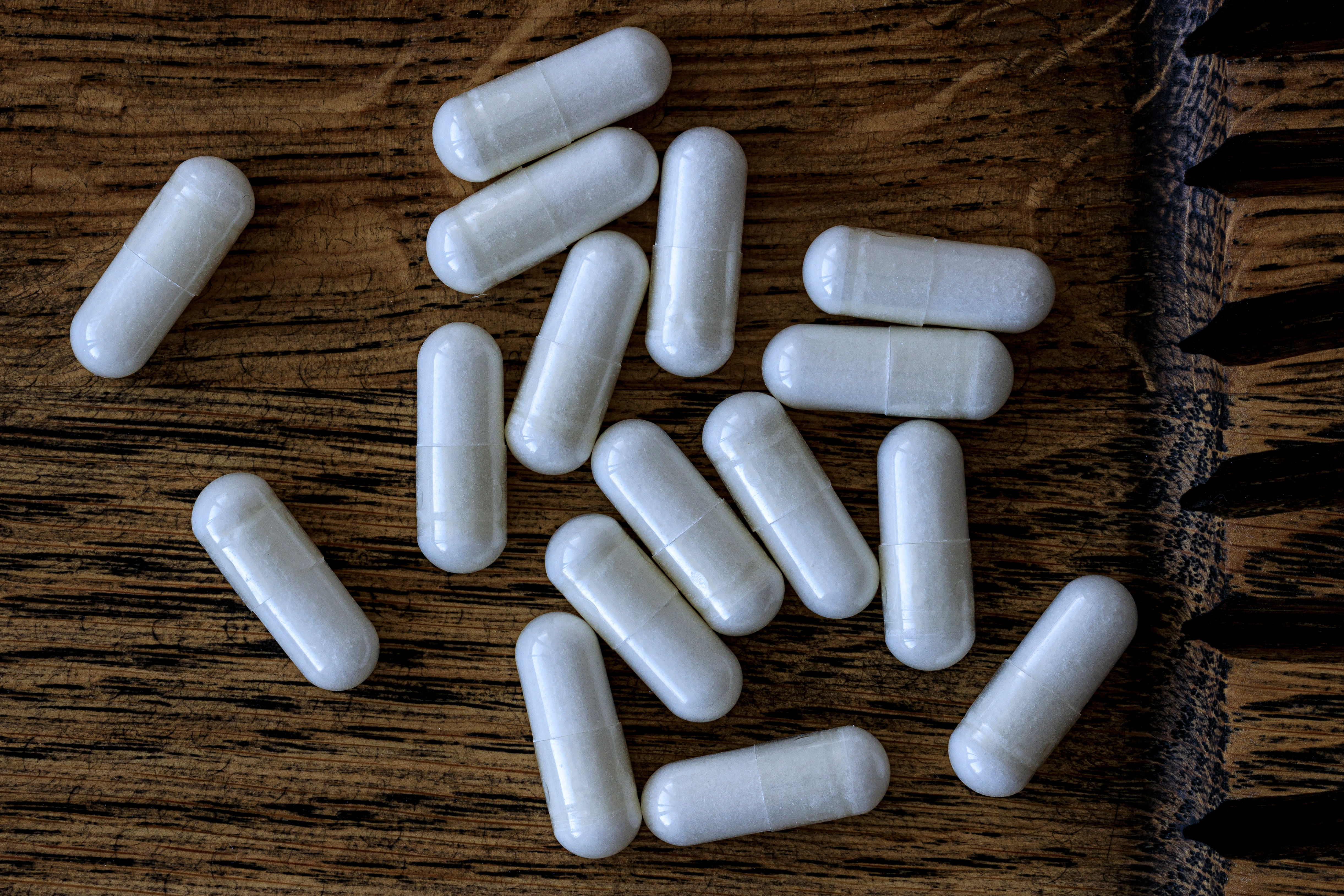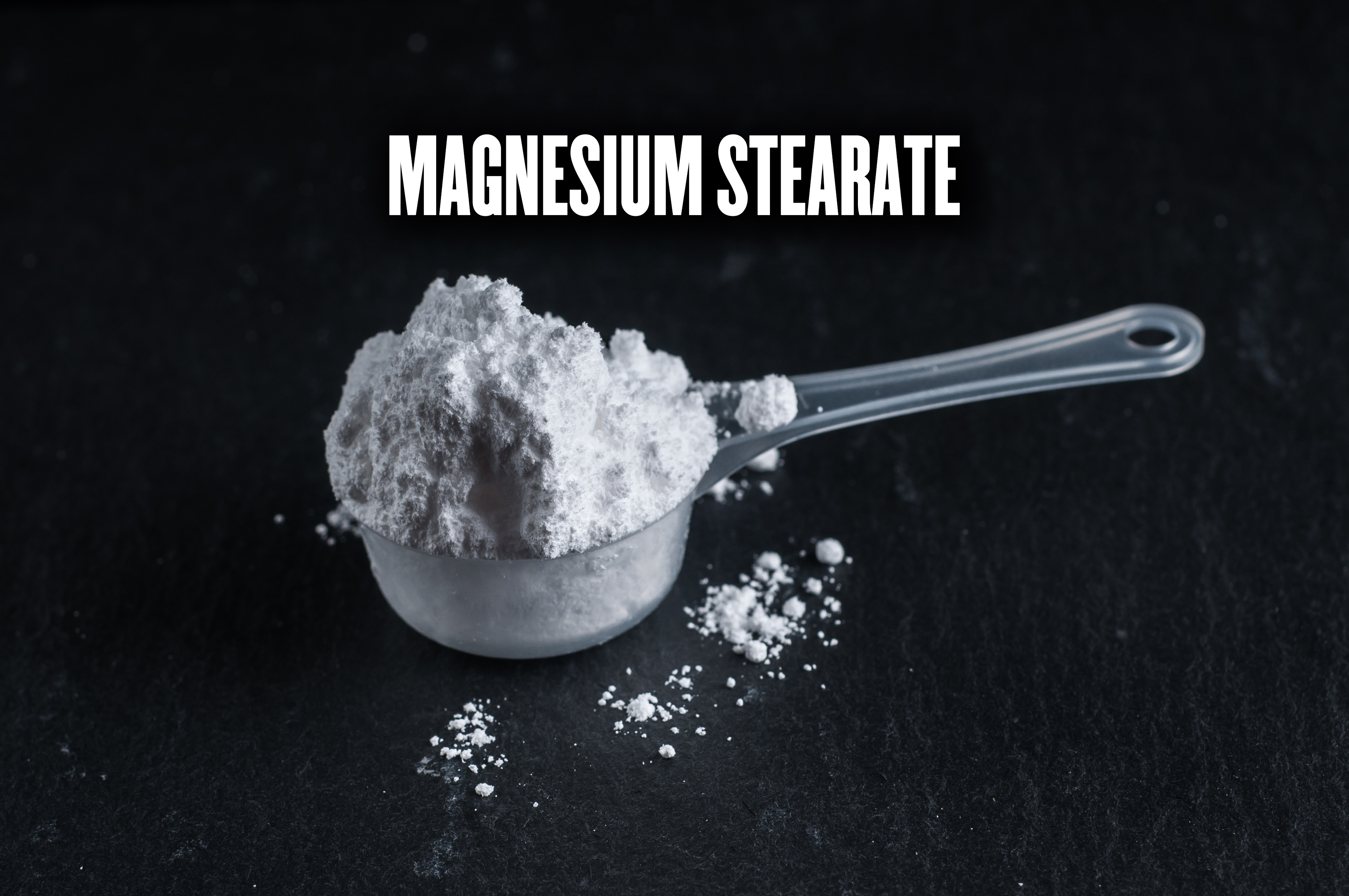Introduction
Have you ever wondered what’s really inside the vitamins and supplements you take? Well, one ingredient you might want to avoid is magnesium stearate. While it may sound harmless, it’s not the magnesium you might be thinking of—it's actually a chemical, and it could be affecting your health in ways you don’t expect.
What is Magnesium Stearate?
Magnesium stearate is a chemical compound used in the supplement industry as a flow agent. It helps manufacturers speed up production by making sticky raw materials—like vitamins, minerals, and herbal medicines—easier to process and fill into capsules or form into tablets. Essentially, it makes the manufacturing process more efficient.
However, the Material Safety Data Sheet (MSDS) for magnesium stearate is eye-opening. This is the same type of document you would find for potentially toxic household cleaners! In fact, when handling magnesium stearate, manufacturers are required to take precautions, such as wearing gloves, masks, and full lab coats. So, what does that mean for you when you’re ingesting small amounts of it in your vitamins? It raises a red flag!
The Absorption Issue: A Simple Experiment
Let’s break it down further. Remember that volcano experiment from grade school? You mix an acid (like vinegar) with a base (like baking soda), and you get that big fizzy explosion. But let’s add magnesium stearate into the mix. In the same experiment, I coated the baking soda with magnesium stearate to mimic how it’s used in supplements.
When I mixed the coated baking soda with vinegar, there was no explosion. Why? The magnesium stearate coated the baking soda, essentially blocking the reaction. This is a great way to visualize what could be happening in your body when you consume supplements with magnesium stearate. It’s coating your vitamins, minerals, and herbal medicines, potentially slowing down or blocking their absorption. This is a concern for anyone looking to get the full benefit of their supplements!
Magnesium Stearate and Its Effects on Absorption
Magnesium stearate hasn’t been tested for long-term safety when consumed in supplements. But there’s a growing concern about how it affects the bioavailability (the degree to which nutrients are absorbed into your bloodstream) of the supplements you're taking. If the nutrients are coated in magnesium stearate, they may not be absorbed as effectively, meaning you could be wasting your money on supplements that aren’t delivering the benefits they promise.
That’s why I always opt for whole-food supplements. These are made from natural, unprocessed foods and don’t contain unnecessary additives like magnesium stearate. Whole-food supplements are a better choice for ensuring you’re getting all the nutrients you need in a form that your body can absorb.
Side Effects of Magnesium Stearate
While magnesium stearate is widely used, some people report side effects when consuming supplements containing it. These can include heart palpitations, upset stomach, and acid reflux. If you’ve noticed these symptoms after taking a supplement, it could be due to magnesium stearate sensitivity.
It’s important to listen to your body and be aware of any reactions you might have to the supplements you take.
Check Your Labels
The reality is that many popular supplements contain magnesium stearate, but fortunately, some brands offer products that don’t. Always check the label of your vitamins, minerals, and herbal supplements to make sure they don’t contain this questionable additive.
In fact, some manufacturers even try to make their products look more natural by replacing magnesium stearate with “vegetable magnesium stearate” or “vegetable stearic acid.” While these sound more natural, they may still have the same effects on absorption.
For me, it’s about taking supplements that are as close to their natural state as possible. Whole food-based vitamins and minerals are a safer, more effective option in the long run.
Conclusion
Magnesium stearate is a common ingredient in many supplements, but that doesn’t mean it’s something you should ignore. By being aware of what’s in your vitamins and supplements, you can make informed decisions that support your health. Always check your labels, and consider opting for supplements that are free from this chemical to ensure you're getting the most from your nutrients.
If you want to learn more about potentially toxic ingredients in supplements, check out my video Avoid These 7 Toxic Ingredients in Your Supplements. Knowledge is power—let’s make sure you’re taking the best care of your body!









